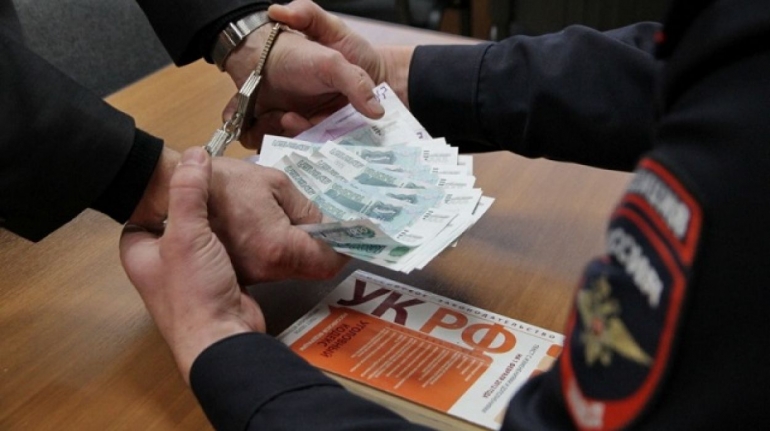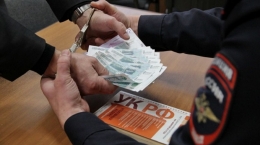By : Rahman Key
ABSTRACTION
“Economic crimes are generally formulated as crimes committed because of or for economic motives (crime carried for economic motives). Economic crime can be seen in a narrow sense, that is only limited to criminal acts. In addition, economic crimes can also be seen widely, namely all criminal acts that are patterned or have economic motives or which can have a negative influence on healthy economic activities and state finances.
Activities in the field of economics and sound state finances can include fields including in the fields of trade, industry and banking. This definition and scope of economic crime in the broadest sense is what is called foreign crimes, crime as business, business crime, abuse of economic power or economic abuses in foreign terms.”
- INTRODUCTIONS
Indonesia has been known to have abundant natural resources and being a country was starting an activities information technology-based economy, that's a one reason why indonesia very vulnerable against economic crimes. Compared to other crimes, especially property crime, economic crimes have special characteristics.
Economic crime depends more on the economic system and the level of development of a society. Thus the capitalist economic system or socialist economic system or mixing of those system will each have its own arrangement of what is called economic crime.
With regard to this economic crime, the most basic thing is the understanding that criminal acts in the economic field are part of the economic law that applies in a nation, while the economic law that applies in a country is inseparable from the economic system adopted by the nation.
- CORPORATE CRIME
Economic crimes also include corporate crime, namely every act committed by a corporation that is threatened with sanctions in the form of sanctions for administrative law, civil law or criminal law. The corporate crime can be in the form of "crime for corporations" or "corporate criminal". Whereas "crimes against corporations" are more of an occupational crime for personal interests, such as embezzlement of corporate money.
In economic crimes there are often narrow boundaries between legality, illegality and crime. Perpetrators often feel themselves not really evil but more because of bad luck (unfortunate mistake) or technically not doing what is required (technical ommision). Formulation of criminal offenses tends to be considered as government interference that is too broad for the business world so that it is considered as over criminalization.
- MONEY LAUNDERING
Money laundering or money bleaching. The money that is the object of money laundering activities is termed in various ways. Some call it dirty money, unclean money, hot money or dark money. The term money laundering itself is a term commonly used internationally. There is no comprehensive and universal definition of money laundering, because various parties such as investigative institutions, business people, countries and other organizations have their own definitions.
Briefly money laundering is an action that aims to change an illegal fund acquisition so that it is seen to be obtained from legitimate funds. It is not easy to prove the existence of money laundering because the activities are very complex.
Experts classify the money laundering process into three stages, first, the placement stage, which is placing funds generated from a criminal activity, for example by depositing the gross money into the financial system, combining illegal cash and legally obtained money. It can also be in the form of converting and transferring into foreign currencies.
- TAX EVASION
Taxes are mandatory contributions collected by the government from the public (taxpayers) to cover the state's routine expenses and development costs without remuneration that can be appointed directly. Tax is one of the important pillars of the economy and is the right to the work of the people managed by the State and by providing infrastructure facilities and legal protection for the implementation of the business carried out.
Taxes running an important role in Indonesia's development. Because without tax the construction of public facilities in Indonesia cannot run smoothly and economic growth in Indonesia will not run well. the proliferation of taxpayers who do not pay their taxes to the tax office has reduced state revenues.
BI Governor stated "In Indonesia, around 4,000 joint ventures are categorized as regional national companies or multinational companies do not pay taxes for seven years". These actions named by Tax Evasion and also include an economic crimes, Because carried out by institution or person in arrears of taxes.
This is a challenge for Indonesia to create regulations along with strict supervision of any agency and individual activities that related to taxes.
- BLACK MARKET
Black market its mean a sector of activities that occur in the economic field in the form of various types of illegal transactions, where the purchases and sales made occur illegally according to applicable rules and laws stipulated by the local government.
Categories of traded goods are goods that enter a country illegally / illegally who do not pay taxes. Examples of electronic black markets (BM). The definition of black market electronics is contraband electronics that do not have a sticker of the Director General of Post and Telecommunication and harm the state because they are not taxed. There are many things that cause black markets within a region / country, some of which are as follows:
- The traded goods are types of illegal goods whose circulation is prohibited by the government. Examples: firearms, illegal drugs and various kinds of chemical goods that are not traded freely.
- Official goods, however, have a number of special provisions and licenses from the government, in which these goods are generally traded in the black market in order to avoid a number of taxes / excise collected by the government. Examples: cigarettes, alcoholic beverages, firearms, and various other items.
- There is a limitation / prohibition on trade in certain items, which usually depends on the policies carried out by the government in a country / region.
- CONCLUDING
In an effort to overcome economic crime, there are several steps that must be taken, including :
Preventive efforts
Preventive efforts are countermeasures carried out to prevent the occurrence of crime or the emergence of crime. Preventing crime is better than trying to educate criminals to get better again, as the motto in criminology is efforts to improve criminals need to be considered and directed so that repeat crimes do not happen again.
It is reasonable if preventive efforts are prioritized because preventive efforts can be carried out by anyone without a special and economic expertise. There are several ways to overcome crime, among others :
1) Recognizing that there will be social needs and encouragement and weak supervision in economic activities that can affect a person's behavior towards economic crime.
2) Focusing on individuals and every entity that engages in economic activities that shows criminal potentiality or attempts to commit a crime, even though the potential is caused by psychological disorders.
Repressive Efforts
Repressive efforts are a conceptional effort to deal with crimes taken after the occurrence of crime. Repression with repressive measures is intended to take action against the perpetrators of crime in accordance with their actions and repairs them so that they realize that their actions are illegal and harm the people, so they will not repeat them and others will not do so because the sanctions to be borne are very heavy. Therefore, Economic crime prevention also can be done by:
Criminal application (application of law criminal)
For example: the application of criminal provisions in violations of trade, export-import, service activities, levies and taxation with maximum penalties, namely the most severe punishment in the demands and decisions.
Preventive without punishment (prevention without crime)
For example: by applying maximum penalties to perpetrators of crime then indirectly provide prevention (prevention) to the public even though he is not subject to punishment or shock therapy to the public.
Influencing views of society on crime and punishment (social media influences the public's view of crime and punishment through social media).
For example: socializing a law by giving an idea of how to categorize offenses and the threat of punishment.
So in addition to preventive measures and repressive efforts, besides that, in the prevention of economic crimes it must also apply criminal law by institutions that supervise economic activities, so that later every economic activity can be utilized as much as possible to support the country's income. So that every activity with economic motives runs legally and legally without any illegal practices carried out by irresponsible individuals.










